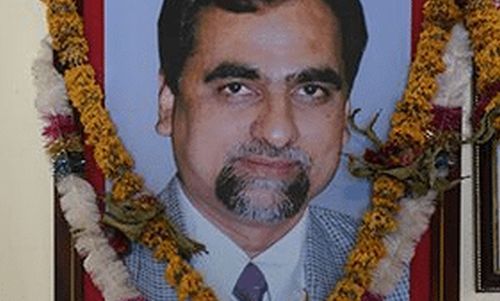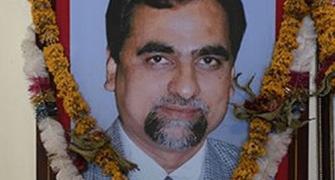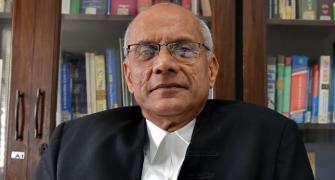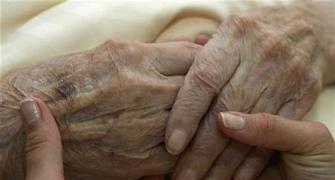 An NGO, which had sought an independent probe into the alleged mysterious death of special Central Bureau of Investigation judge B H Loya on Friday claimed in the Supreme Court that he might have died due to poisoning as he had complained of chest congestion.
An NGO, which had sought an independent probe into the alleged mysterious death of special Central Bureau of Investigation judge B H Loya on Friday claimed in the Supreme Court that he might have died due to poisoning as he had complained of chest congestion.
It said that Loya's ECG and histopathology report indicate that he did not die due to a heart attack which means that he may have died of poisoning.
A bench of Chief Justice Dipak Misra and justices A M Khanwilkar and D Y Candrachud was told by advocate Prashant Bhushan, appearing for the Centre for Public Interest Litigation, an intervenor in the case, that reports were shown to the doctors and forensic experts, who were of the opinion that there was no sign of heart attack.
"If there was no sign that Loya suffered a heart attack, then what made the judges who were accompanying him believe that he had a heart attack," Bhushan asked.
He said the two judges of the Bombay high court in their statement have said that Loya had complained of chest pain in the wee hours of December 1, 2014, when he had gone to attend the wedding of a colleague's daughter.
"Does this not mean that he may have died due to poisoning? Because in poisoning also there are similar symptoms of chest congestion and blood flow stops to the heart," he said.
Bhushan said that two sitting judges of the high court have given their statements regarding the death of judge Loya and this indicates that they are witness to the case.
"If this is the case, then two judges of bench (referring to Justice A M Khanwilkar and D Y Chandrachud) who have served in Maharashtra and know these judges (HC judges), may not hear the case," Bhushan added.
This argument prompted Justice Khanwilkar to say, "Mr. Bhushan, we will be more than happy if the high court hear this matter."
Justice Chandrachud also interfered and said, "If that is your argument then we will deal with it the way we deal a case. We must tell you, we ask ourselves in every case whether we should consider hearing the matter or not especially when the matter comes from high court."
Bhushan replied that he has not filed any application seeking recusal of judges from the bench but all he is saying is that two of the judges in this bench knows the Bombay high court judges who have become witnesses in the case.
This contention of Bhushan was objected by senior advocate Mukul Rohatgi, appearing for the Maharashtra government, who said that this argument is absurd as Supreme Court judges come mostly from high courts and it can't be that they should recuse from hearing every other case.
Bhushan said he had personally met many cardiologists who had seen these reports and had ruled out that judge Loya had died of a heart attack.
He pointed out the expert opinion of Dr Upendra Kaul, former professor of cardiology at AIIMS and Padma Shri awardee, who had virtually ruled out a heart attack as the cause of death, on the basis of the histopathology and ECG reports.
Bhushan further pointed out that the doctor at Dande Hospital and Meditrina Hospital in Nagpur had noted tall T-waves in the ECG, in their statements filed with the State.
On Thursday, the apex court had taken umbrage against a senior lawyer for casting aspersions on judges that they were only asking "searching questions" to those who brought the Loya death case before it, and not to the Maharashtra government.
Loya, who was hearing the high-profile Sohrabuddin Sheikh fake encounter case, had allegedly died of cardiac arrest in Nagpur on December 1, 2014 when he had gone to attend the wedding of a colleague's daughter.








